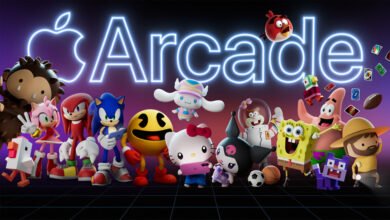Onboarding Presentation For New Hires


Why An Onboarding Presentation Is A Must
Starting a new job can be overwhelming and confusing, but luckily, onboarding presentations are here to help. These sessions are important for making new employees feel welcomed, informed, and ready for their new roles. An onboarding presentation is a structured meeting that introduces new hires to the company, its culture, policies, and their specific job responsibilities. It’s a way to show new employees that they are valued and to set clear expectations.
By outlining the company’s mission, values, and goals, onboarding presentations give new hires a sense of purpose and help them understand how their role contributes to the company’s success, which, in turn, can lead to increased motivation and productivity. Read about the importance of onboarding for your company and what a good onboarding presentation consists of.
Importance Of Onboarding
Setting The Tone
When done right, onboarding can really create a great first impression, as it sets the tone for what new employees will experience during their time in your company. If they feel supported and informed from the start, they’re more likely to be engaged and motivated to perform their best.
Integration And Connection
Onboarding helps your new hires integrate smoothly into the company culture and their tasks from day one, making them feel like they’ve always belonged there. This level of connection is important because it allows them to form meaningful relationships with their peers, experience teamwork, and contribute more.
Retention And Engagement
Giving newcomers all the necessary tools and resources they need from the start prepares them for success immediately, encouraging them to stay with your company long-term. Plus, they get more engaged, which increases productivity and commitment to their work. Remember that a high turnover rate is costly, so investing in a structured and strong onboarding program is a smart move that will benefit you in many ways.
Components Of An Onboarding Presentation
1. Welcome Message
A great welcome message is all about getting new hires excited to join the team. It’s the first time they’re hearing from you, so you want to be upbeat and exciting. Start with something like, “Welcome aboard! We’re so excited you’re here and can’t wait to see what we can achieve together.” Add a personal touch, too. For example, mention they’ll meet their team members this week or train on specific concepts.
2. Company Overview
During this part, you can start with the company’s history. Talk to your new hires about how it all began, who founded it and when, and any other important milestones. Next, explain the mission and vision of the company. These are the principles that will guide them so they can align their work with the company’s goals.
3. Introduction To Teams And Departments
An introduction to the various teams and departments in the onboarding presentation will make things easier for new hires, as they will know who does what and where to go for certain things. Start by outlining the main departments, and for each one, provide a brief summary of their role in the company. Then, introduce all the team members and explain the way teams collaborate. This will give newcomers a sense of the workflow and how they’ll be interacting with each team.
4. Role And Expectations
Start by breaking down your new hires’ job roles in detail. Explain the day-to-day tasks they’ll be handling and how these contribute to the overall goals of the company. This will help them understand the importance of their position and can boost their sense of purpose from the get-go. Next, outline the key expectations. From performance standards and deadlines to workplace behavior, make sure they know everything they’re expected to do while working there.
5. Company Culture And Values
It’s really important for new members to know what your organization stands for. This is why you should talk to them about your workplace culture. Describe the environment, how teams collaborate, and what social norms and behaviors are encouraged. Don’t forget to mention the company’s approach to work-life balance, professional development opportunities, and any support systems in place for employees.
6. Benefits And Perks
Benefits and perks are how a company shows their employees they have their backs. Make sure they know all about health and dental plans, vision coverage, and maybe even some wellness programs. As far as perks are concerned, you can get creative. Gym memberships, flexible work hours, remote work options, discounts on products and services—it’s all about showing them that your company isn’t just about work but about making their lives better, too.
7. Policies And Procedures
Here you want to cover the dos and don’ts of your company. You must mention company policies like dress code and work hours, and, of course, HR policies, such as how to request time off. Don’t forget about safety procedures, like fire exits or any other emergency protocols. Lastly, inform them about security measures, such as how to handle sensitive information, IT security policies, and any guidelines about data protection.
8. Training And Development
Upon welcoming new employees, you want to show them all the different training options they have available. These could include things like on-the-job training, workshops, or online courses. Just make sure they know what resources they can use to improve their skills and gain more knowledge. After that, get into the details. Talk about what they can look forward to in the training, like how long it will take, what they will learn, and any assessments they might need to take.
9. Q&A Sessions
After you have given them all the above information about the company, the rules, benefits, etc., it’s your new employees’ chance to digest it all and ask questions. Q&A sessions are important because they allow newcomers to clarify anything they didn’t quite catch or understand during the onboarding presentation. Make sure to create an environment where they will feel comfortable asking anything without hesitation, and encourage them to ask questions by using a positive tone.
FAQs
Why use an onboarding presentation template?
Using a presentation template for onboarding new employees can really streamline the process. It ensures that everyone gets the same important information and reduces the chances of missing anything crucial. This is key to understanding company policies, culture, and job expectations. Plus, it saves time by not having to create a new presentation every time someone joins—just update the template with the latest information. This allows HR teams to focus more on personal interactions and less on repetitive tasks. Templates also help keep the presentation interesting with well-designed slides and multimedia elements like videos and animations. This makes the onboarding process more engaging and easier for new employees to follow.
How do I craft an effective onboarding presentation for new employees?
To make a good onboarding presentation for your employees, just keep it simple and engaging. Be careful not to give them too much information, and use a mix of multimedia elements to make things interesting and interactive. Always include some practical info, too, like what they’ll be doing, who they’ll be working with, and the basic rules and procedures. And don’t forget to let them know about the resources they can use and any training materials or tools they can use at the company. Finally, make certain that your tone is friendly and approachable. Let them know that they can ask any questions they want and give them plenty of chances for feedback. Last but not least, remember to check in with your new hires afterward to answer the remaining questions and ensure they feel supported.
Why is the initial touchpoint in onboarding so important?
The initial touchpoint is the first interaction of your new members with the company, which shapes how they feel about the whole experience. When done properly, this touchpoint can help calm their nerves on the first day and get them excited about their new position. It also helps new hires understand the role and how they fit into the company. If things start on a good note, new employees are likely to be more involved and dedicated right off the bat. On the other hand, a rough start can cause confusion, disinterest, and possibly even more people leaving. So, it’s worth putting in the time and effort to make that initial connection count in order to have a workforce that’s motivated and loyal.
In what ways does a personalized onboarding presentation enhance the onboarding experience?
Having a personalized onboarding presentation can really boost the onboarding process by making new hires feel appreciated as part of the team right away. Just imagine starting a new job and having a presentation that’s all about you—your name, background, and role details. It’s the company’s way of showing you that they see you and are happy you’re there. This personal touch can make new employees feel more welcomed and less like just another face in the crowd. Also, it can help address the specific needs and questions of each new hire. For example, if someone is joining the marketing team, the presentation can cover current projects, important members, and tools specific to that department. This tailored information can help new members learn faster and feel more comfortable in their positions.
Conclusion
Investing in an onboarding presentation is a game-changer for companies. Not only does it help your new employees feel welcomed right from the start, but it will also make things smoother and more efficient, saving your HR department time. What can help you is onboarding software. It takes care of the boring stuff automatically, so new hires can focus on getting to know their team and the role, and HR pros can focus on other tasks. This way, new employees will feel more connected and motivated, which is great for everyone involved. In the end, a structured onboarding process with the right tools leads to happier, more productive employees who stick around longer. It’s a win-win for the company and the team.
Source link





